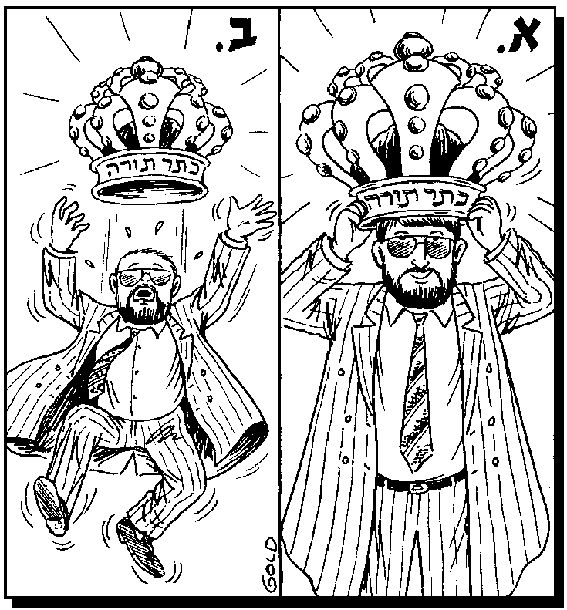RABBI ARTHUR SEGAL:
DEREK ERETZ:
DON'T USE TORAH AS SPADE TO BURY OTHERS:
Jewish Spiritual Renewal: Derek Eretz Zuta + Rabbah:
Shabbat 06/04/11
(aka Derech Eretz )
The JEWISH SPIRITUAL RENEWAL class list is hosted by Shamash: The Jewish Network a service of Hebrew College/Yeshiva
Shalom my dear Chaverim, Talmidim, v' Rabbanim, friends, students and fellow rabbis.
An oneg, joy-filled, Shabbat, Sabbath, this coming weekend... and Shavuah Tov to you for a good and peaceful week.
We continue with our exploration into the Talmudic Tractates of Derek Eretz Zuta and Rabbah. (aka Derech Eretz Zuta, aka Derech Eretz Rabbah. As was mentioned, zuta is Aramaic for 'small', and rabbah is 'large').
Remember that Derek Eretz is not about Jewish ritual. It is about how we are to treat one another and what traits of character, middot, we are to try to develop. The lessons are universal and ecumenical.
For those new to the class, Baruch ha Ba! Welcome! You can access last week's class at
Rabbi Arthur Segal: RABBI ARTHUR SEGAL: LEARNING REQUIRES HUMILITY TO SAY 'I DON'T KNOW' + 'REPEAT' or http://rabbiarthursegal.blogspot.com/2011/05/rabbi-arthur-segal-learning-requires.html
From here you will find links to preceding classes in this series. So, together we continue:
TALMUD BAVLI
TRACTATE DEREK
ERETZ ZUTA
(aka Derech Eretz)
Today we will continue with CHAPTER 2.
Talmud Bavli Tractate Derek Eretz Zuta Verse 2:4
''Do everything for the sake of the Creator, and talk of thy deeds in the same sense . Do not make thy merits as a crown to be glorified by it, and not as a hatchet to cleave with it, nor a spade to dig with it.''
If we remember from last week's class, the rabbis were teaching us Derek Eretz, ethical manners, with the studying of Torah and Talmud, etc. Those lessons could be easily extrapolated into studying any subject with any teacher, not just a rabbi.
Today's verse is specific to Torah and Scriptural study.
''Do everything for the sake of the Creator, and talk of thy deeds in the same sense.'' There is a phrase involved in Torah study, (and when I say Torah, in this week's class, I am referring to all of our spiritual texts) and it is "Torah Lishma." It means studying Torah literally, "for its sake" (even more literally, "for its name'').
There is a long verse in Talmud Bavli Tractate Pirkei Avot 6:1, and I will delete some of the extraneous parts for sake of brevity of this class.
"Rabbi Meir said: Anyone who engages in Torah study for its own sake ('lishma ') merits many things. ...He is called 'friend' and 'beloved,' he loves God, he loves man, he brings joy to God, he brings joy to man.... He becomes modest, slow to anger, and forgiving of the wrongs done to him...''
We are not studying Torah for selfish reasons, as a means to an end. Studying brings us closer to God, and being closer to God, brings us closer to others. All of Torah is to teach us ahavath chesed, loving kindness.
When we study, it is for God's glory, and we do not brag about how we have studied this text or that text. King David rejoiced: "If not for Your Torah, my delight, I would have perished in my suffering" (Ps. 119:92).
The sages tell us in the Talmud that if a student says he wants to study to become a rabbi, he is disqualified from becoming a rabbi. Further if one says he has a 'Divine calling' to study to become a rabbi, he is called 'ra', evil. R' Hillel taught: "One who makes personal use of the crown of Torah shall perish.'' (P. Avot 1:13).
'' Rabban Yochanan ... would say: If you have learned much Torah, do not take credit for yourself---it is for this that you have been formed.'' (P. Avot 2:8)
Unfortunately we have all seen people in many religions having tremendous ego, using Scriptures for their own personal gain, and eventually perishing sometimes on live TV or in the headlines.
''Do not make thy merits as a crown to be glorified by it...'' Pirkei Avot 4:5 has more wisdom for us. ''Do not make the Torah a crown to magnify yourself with... Hence, one who benefits himself selfishly from the words of Torah, removes his life from the world.''
Our sages did their best to be modest, and the Talmud related many rabbis' slips in this area of character. But they said, showing them not wearing a glorified crown of Torah, " If our blessed sages before us were sons of angels, then we are but sons of men. But if our blessed sages sons of men, we are nothing but donkeys.'' [Talmud Bavli Tractate Shabbat 112a]
''Do not use the Torah as a hatchet to cleave with it, nor a spade to dig with it.'' On its face this again is admonishing rabbis or laymen who have Torah knowledge not to use that knowledge to earn income. In fact, the Talmud, quoting the Torah, calls the Torah an inheritance of the children of Jacob, [ Morashah k'hillat Ya'akov], and one who refuses to teach it, or charges to teach it, is someone who is stealing another's inheritance[ Talmud Bavli Tractate Sanhedrin 91b].
Traditionally our rabbis had worldly occupations and we not beholden to lay boards for salary, and hence could teach true Judaism. The concept of a professional rabbi was not a widely accepted Jewish concept until the 1800s, and in many circles still is not considered to be proper. We see few if any rabbis on TV hawking Torah for their own benefit, Baruch ha Shem. However web sites will show rabbis willing to pray for you for a fee, or sell so-called Kabbalah red bracelets for even a larger fee. When the economy sours, and synagogue boards lay off rabbis, we see rabbis fighting over what I call the ''crumbs of Judaism.'' And these crumbs usually are life cycle event fees.
But this phrase has two deeper meanings. One has been alluded to above. We aren't to use our Torah against others as a hatchet to harm them, or a spade to bury them. Yet at the present, many of the sects of Judaism, have unions which are really alumni societies, and in writing declare rabbis who haven't gone to their approved programs, to be ''less than.'' This goes against basic derek eretz. And without derek eretz, one can't even study Torah properly, or even be a rabbi {P.Avot 3:21}. Rabbis and sects or even congregations, treating other rabbis or sects or congregations, as competition to be hacked with a hatchet or buried with a shovel, are not behaving Jewishly.
The other deeper spiritual meaning [sod] of not using Torah as a hatchet or a spade, is one that unfortunately we have seen others do in other religions. Pope Urban II announced with the Bible in his hand, ''Deus Vult'', (God wills it), and the bloody crusades began. And Osama holds a Koran in one hand, yelling ''Bismillah Arrahman Arraheem'', (In the name of Allah, the most gracious the most merciful), and a Jihad against the USA begins.
And we Jews are not innocent in using the Torah as a call for war or death. Prime Minister Rabin was killed by a Jew, whose Rabbi taught him, quoting Talmud, that Rabin was a '' Rodef '', a stalker against Israel and ''needed killing.'' A rabbi in south N.J. convinced a congregant that his rebbetzin was a Rodef against Israel and needed to be killed. And we cannot use the Torah as a deed for justification for war.
Our Holy Scriptures are called Holy, in Hebrew ''Kadosh'', meaning to separate. While we can use texts such as Gray's Anatomy, or Black's Law, or the Federal Tax Code, or Van Dyke's History of Painting et. al. to have occupations in which to succeed, the Scriptures are meant to elevate and separate us from the mundane and not to give us yet another avenue to be pedestrian.
Next week, Baruch ha Shem, we will continue with chapter two of Derek Eretz Zuta .
We discuss the aspects of this verse on humility, ego deflation, and not using one's Torah knowledge improperly throughout the majority of chapters in The Handbook to Jewish Spiritual Renewal: A Path of Transformation for the Modern Jew as well as in most chapters of A Spiritual and Ethical Compendium to the Torah and Talmud .
What are your ideas about sharing what you have learned about spirituality or religion with others? How has learning that one must have humility and ego deflation and not use one's Torah knowledge to take advantage of others changed the way you look at so-called ''organized religion''? How has understanding the spiritual and ethical teachings of Judaism helped you live a happier life?
Next class, Baruch ha Shem, we will continue with Derek Eretz Zuta , continuing Chapter Two. Thank you for joining me.
For those who want a d'var Torah on Parasha Naso from A Spiritual and Ethical Compendium to the Torah and Talmud or http://www.jewishspiritualrenewal.net/index.html#Compendium2 please click on: Rabbi Arthur Segal: RABBI ARTHUR SEGAL:JEWISH SPIRITUAL RENEWAL:JEWISH RENEWAL:NASO:COHAN BLESSINGS or http://webcache.googleusercontent.com/search?q=cache:xlMQYgkPTDEJ:rabbiarthursegal.blogspot.com/2009/05/rabbi-arthur-segaljewish-spiritual_424.html+naso+%22rabbi+arthur+segal%22&cd=3&hl=en&ct=clnk&gl=us&source=www.google.com
\
Shalom:
Rabbi Arthur Segal www.jewishspiritualrenewal.org
Via Shamash Org on-line class service
Jewish Renewal www.jewishrenewal.info
Jewish Spiritual Renewal
Jewish Spirituality
Eco Judaism
Hilton Head Island, SC, Bluffton, SC, Savannah, GA
Via Shamash Org on-line class service
Jewish Renewal www.jewishrenewal.info
Jewish Spiritual Renewal
Jewish Spirituality
Eco Judaism
Hilton Head Island, SC, Bluffton, SC, Savannah, GA
If visiting SC's Low Country, contact us for a Shabbat meal, in our home by the sea, our beth yam.
Maker of Shalom (Oseh Shalom) help make us deserving of Shalom beyond all human comprehension!
The JEWISH SPIRITUAL RENEWAL mailing list is hosted by Shamash: The Jewish Network.
Join Shamash's Groups on Facebook and LinkedIn.
Join Shamash's Groups on Facebook and LinkedIn.
To unsubscribe from the SPIRITUALRENEWAL list, email: SPIRITUALRENEWAL-unsubscribe-request@SHAMASH.ORG
For other options go to: http://listserv.SHAMASH.ORG/
For other options go to: http://listserv.SHAMASH.ORG/






